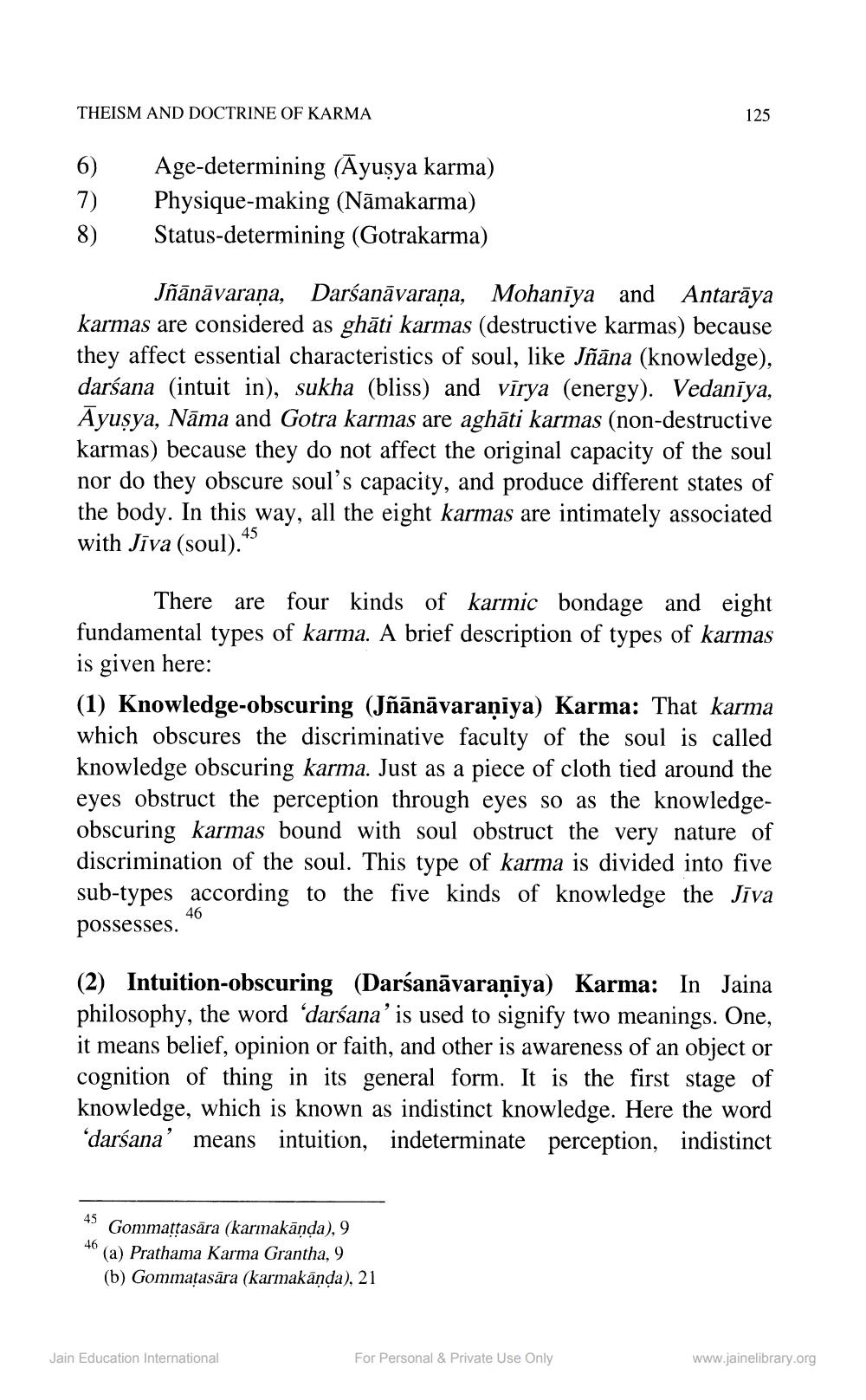________________
THEISM AND DOCTRINE OF KARMA
125
7) 8)
Age-determining (Āyusya karma) Physique-making (Nāmakarma) Status-determining (Gotrakarma)
Jñānāvaraņa, Darśanāvaraņa, Mohanīya and Antarāya karmas are considered as ghāti karmas (destructive karmas) because they affect essential characteristics of soul, like Iñāna (knowledge), darśana (intuit in), sukha (bliss) and vīrya (energy). Vedanīya, Ayusya, Nāma and Gotra karmas are aghāti karmas (non-destructive karmas) because they do not affect the original capacity of the soul nor do they obscure soul's capacity, and produce different states of the body. In this way, all the eight karmas are intimately associated with Jiva (soul).*
There are four kinds of karmic bondage and eight fundamental types of karma. A brief description of types of karmas is given here: (1) Knowledge-obscuring (Jñānāvaraniya) Karma: That karma which obscures the discriminative faculty of the soul is called knowledge obscuring karma. Just as a piece of cloth tied around the eyes obstruct the perception through eyes so as the knowledgeobscuring karmas bound with soul obstruct the very nature of discrimination of the soul. This type of karma is divided into five sub-types according to the five kinds of knowledge the Jīva possesses."
46
(2) Intuition-obscuring (Darsanāvaraņiya) Karma: In Jaina philosophy, the word 'darśana’ is used to signify two meanings. One, it means belief, opinion or faith, and other is awareness of an object or cognition of thing in its general form. It is the first stage of knowledge, which is known as indistinct knowledge. Here the word ‘darśana' means intuition, indeterminate perception, indistinct
4 Gommattasära (karmakāņda), 9 40 (a) Prathama Karma Grantha, 9
(b) Gommatasāra (karmakānda), 21
Jain Education International
For Personal & Private Use Only
www.jainelibrary.org




